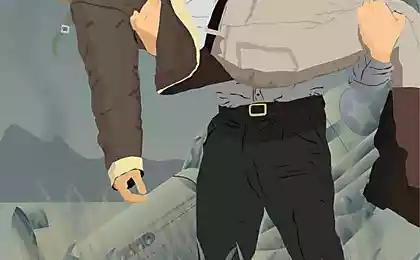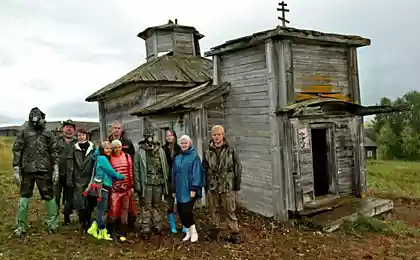847
10 people who were not too lucky with the profession
Unfortunately in today's world so many people for a variety of circumstances, forced to do what they do not like. And if you like a morning once again the plight of the sad office worker, from morning till evening sticking out on the 38th floor of a skyscraper, then just think of these people, which the profession is much less fortunate than others.
1. Sawyer. B>
It would seem pleasant work in the open air, in the trees, what's not to like? Meanwhile, it is one of the most dangerous professions in the world. The mortality rate among loggers is 11 times higher than in other professions. The threat to life and health there is almost everything: saw blades, chains, falling trees and heavy branches.
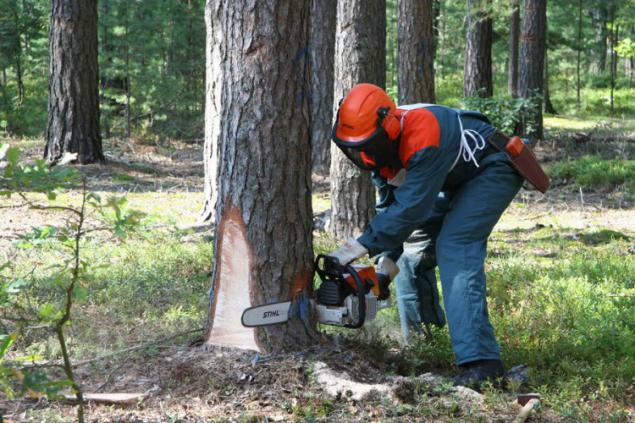
2. Sterelizator medical waste. B>
Have you ever thought about what happens to the used needles, syringes, tissue samples, all kinds of tests? It goes without them eventually disposed of, but before that they have to undergo a mandatory sterilization procedure. Its essence is that the worker assembles all of these materials, puts them in a special apparatus like a huge microwave oven, and there they are disinfected at a temperature of 127 degrees for 30 minutes. Needless to say all the risks and dangers linked to the profession. Anyone, even the slightest damage to the mask or gloves enough to catch any dangerous disease.
3. Cleaner corpses from the road. B>
It is regrettable, but on the roads in different countries every year are killed quite a number of wild animals. Naturally, their corpses there someone has to clean up. Actually, it is this is the main duties of these people. However, the difficulty here is not only to scrape the remains of bodies with asphalt, but at the same time to avoid being a victim of traffic.
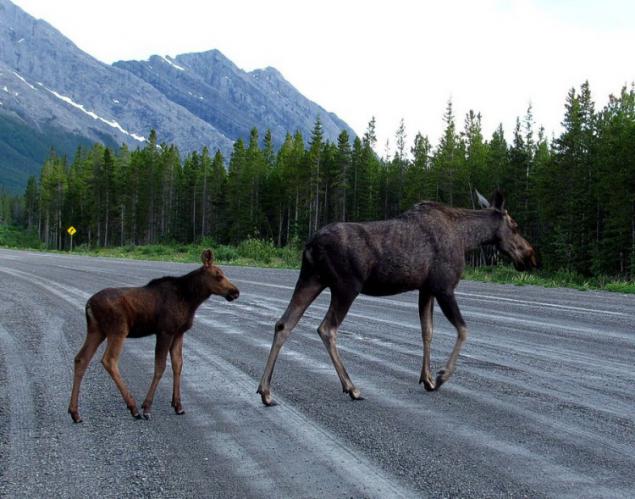
4. An employee of the conveyor belt in the fish factory. B>
Their task - to chop off the head of the fish, cut open the belly, remove the entrails and throw on a conveyor belt. Like anything complex, but working conditions are appalling. Employees are all day in an unheated factory shop, spend time on their feet ankle-deep in blood and guts of fish, and can easily be cut with sharp knives. And since your hands are covered with fish entrails in wound infection is easily entered. The hardest thing, however, is the smell, which eats not only in clothing, but also in the skin of the factory workers.
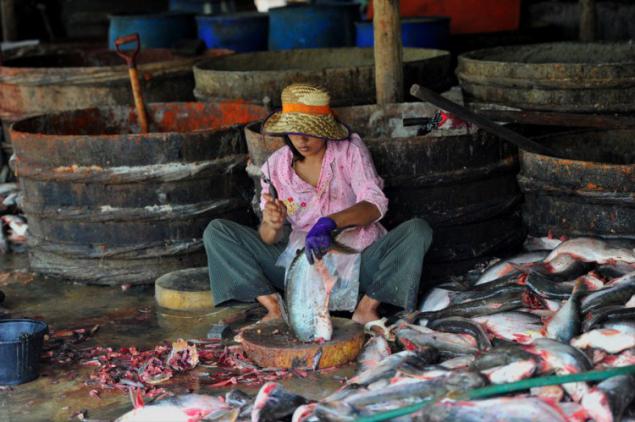
5. Industrial diver. B>
Technical divers or divers working just appalling conditions: in cold water, including toxic materials, toxic waste, under the oil films on the surface of the ocean. Just imagine, the minimum visibility around toxic media, and literally a damage suit is enough to be alone in front of a bunch of infections and toxins.
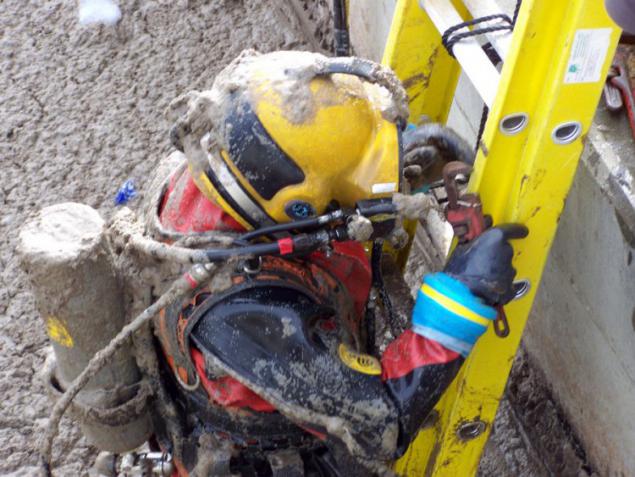
6. Nightman in India. B>
What could be worse than scavengers work? Only if this is the work in India. You have already submitted a car with a tank and a hose, sad man in rubber boots to the waist? Certainly not! Nightman in India every day down to the bottom two meters sewer pipe, there crouches on a belt and using picks and collects scrap waste, among other more dense mass, which can stall the drain. For this type of work a person receives about $ 100 a month.
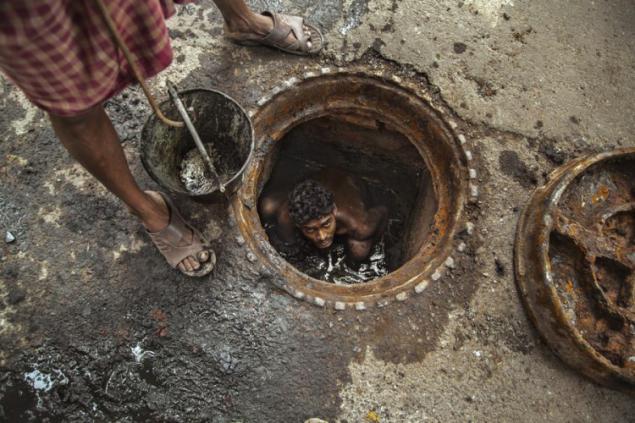
7. Specialist bird slaughter. B>
Representatives of the profession slaughter chickens. In the literal sense of the word: take a knife suitable for the birds suspended for the foot on the ropes, and stab the carcass blade. Workplace - small stuffy room full of chicken feathers, smell, blood and viscera. Stress the danger be cut with a sharp knife and pick up an infection is constantly accompanied by experts in poultry slaughter. The list of diseases that are members of this profession can pick from the chickens, is huge: from the banal to the gastric infection deadly bird flu.
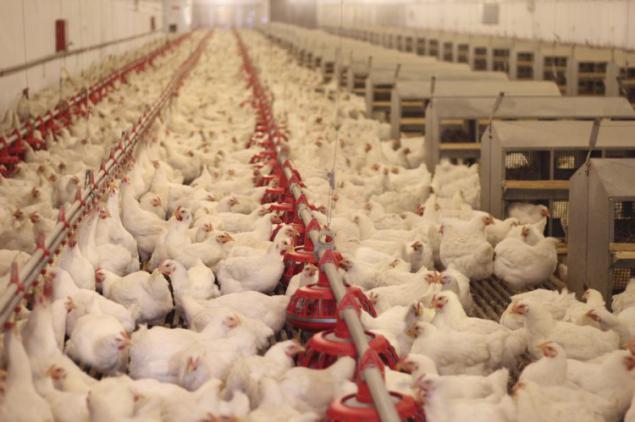
8. Researcher whale faeces. B>
Yes, it turns out there are. These people are engaged exclusively in that ply the seas and oceans in search of typical brown spots. Explore feces need to get more detailed information about genetics, diseases and habitats of whales. Agree, not the most pleasant of the professions.
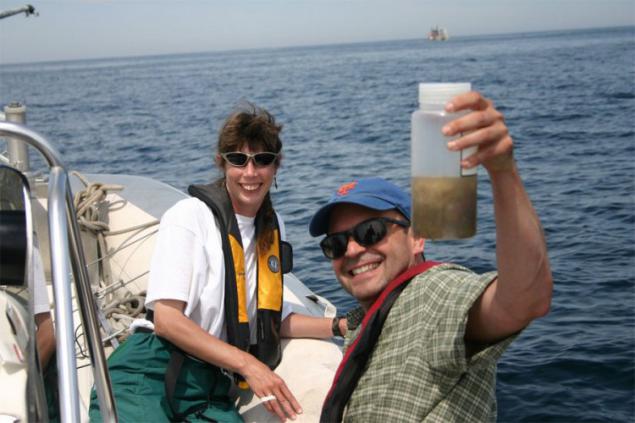
9. Forensic entomology. B>
This is a man who on the specifics of development of insects on the body and nature of damage caused by them, helping investigators to solve the murder. Can you imagine a man whose main job is digging in the decomposed corpses of men in search of larvae, pupae and adult blowflies.
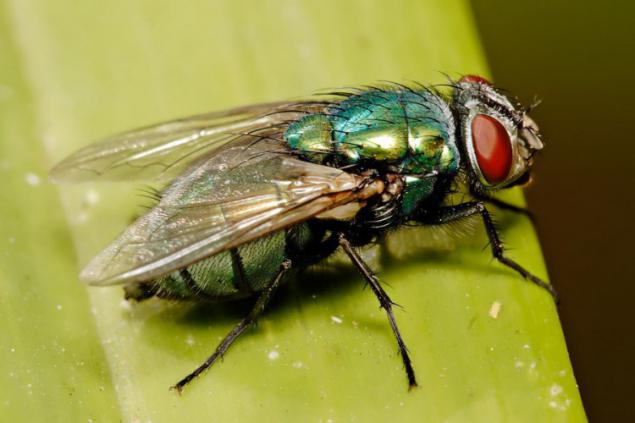
10. Specialist cattle digestion. B>
For the past 150 years on some farms in this way workers watching cows digestion. The animal's body is inserted into the tube that leads directly into the stomach of the animal. With this pipe experts monitor the digestion of the animal, evaluate how quickly digested certain food, and in which case - directly assist digestion, thrusting arm inwardly and mixing feed.
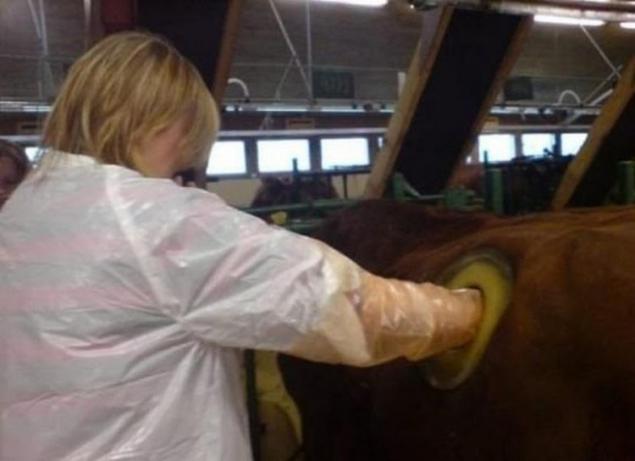
: Fishki.net
1. Sawyer. B>
It would seem pleasant work in the open air, in the trees, what's not to like? Meanwhile, it is one of the most dangerous professions in the world. The mortality rate among loggers is 11 times higher than in other professions. The threat to life and health there is almost everything: saw blades, chains, falling trees and heavy branches.

2. Sterelizator medical waste. B>
Have you ever thought about what happens to the used needles, syringes, tissue samples, all kinds of tests? It goes without them eventually disposed of, but before that they have to undergo a mandatory sterilization procedure. Its essence is that the worker assembles all of these materials, puts them in a special apparatus like a huge microwave oven, and there they are disinfected at a temperature of 127 degrees for 30 minutes. Needless to say all the risks and dangers linked to the profession. Anyone, even the slightest damage to the mask or gloves enough to catch any dangerous disease.
3. Cleaner corpses from the road. B>
It is regrettable, but on the roads in different countries every year are killed quite a number of wild animals. Naturally, their corpses there someone has to clean up. Actually, it is this is the main duties of these people. However, the difficulty here is not only to scrape the remains of bodies with asphalt, but at the same time to avoid being a victim of traffic.

4. An employee of the conveyor belt in the fish factory. B>
Their task - to chop off the head of the fish, cut open the belly, remove the entrails and throw on a conveyor belt. Like anything complex, but working conditions are appalling. Employees are all day in an unheated factory shop, spend time on their feet ankle-deep in blood and guts of fish, and can easily be cut with sharp knives. And since your hands are covered with fish entrails in wound infection is easily entered. The hardest thing, however, is the smell, which eats not only in clothing, but also in the skin of the factory workers.

5. Industrial diver. B>
Technical divers or divers working just appalling conditions: in cold water, including toxic materials, toxic waste, under the oil films on the surface of the ocean. Just imagine, the minimum visibility around toxic media, and literally a damage suit is enough to be alone in front of a bunch of infections and toxins.

6. Nightman in India. B>
What could be worse than scavengers work? Only if this is the work in India. You have already submitted a car with a tank and a hose, sad man in rubber boots to the waist? Certainly not! Nightman in India every day down to the bottom two meters sewer pipe, there crouches on a belt and using picks and collects scrap waste, among other more dense mass, which can stall the drain. For this type of work a person receives about $ 100 a month.

7. Specialist bird slaughter. B>
Representatives of the profession slaughter chickens. In the literal sense of the word: take a knife suitable for the birds suspended for the foot on the ropes, and stab the carcass blade. Workplace - small stuffy room full of chicken feathers, smell, blood and viscera. Stress the danger be cut with a sharp knife and pick up an infection is constantly accompanied by experts in poultry slaughter. The list of diseases that are members of this profession can pick from the chickens, is huge: from the banal to the gastric infection deadly bird flu.

8. Researcher whale faeces. B>
Yes, it turns out there are. These people are engaged exclusively in that ply the seas and oceans in search of typical brown spots. Explore feces need to get more detailed information about genetics, diseases and habitats of whales. Agree, not the most pleasant of the professions.

9. Forensic entomology. B>
This is a man who on the specifics of development of insects on the body and nature of damage caused by them, helping investigators to solve the murder. Can you imagine a man whose main job is digging in the decomposed corpses of men in search of larvae, pupae and adult blowflies.

10. Specialist cattle digestion. B>
For the past 150 years on some farms in this way workers watching cows digestion. The animal's body is inserted into the tube that leads directly into the stomach of the animal. With this pipe experts monitor the digestion of the animal, evaluate how quickly digested certain food, and in which case - directly assist digestion, thrusting arm inwardly and mixing feed.

: Fishki.net














